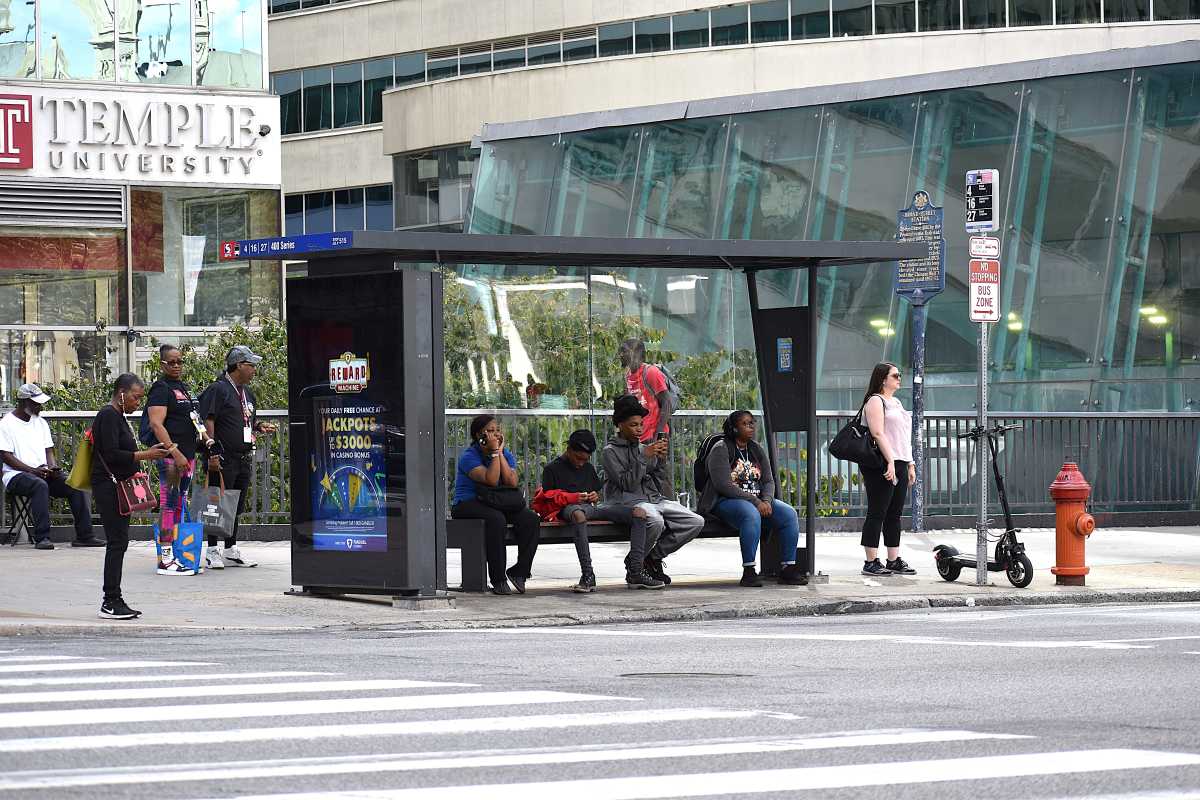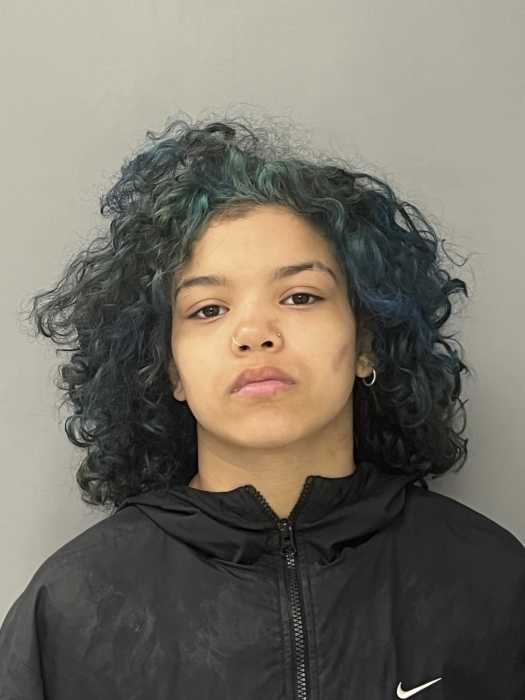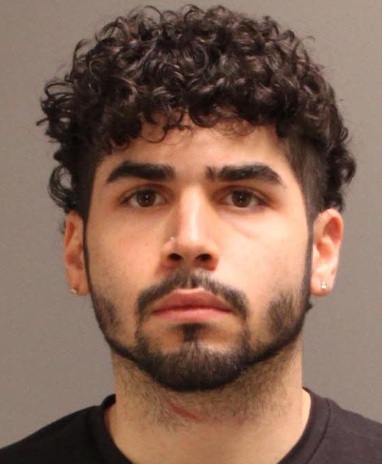A Philadelphia lawyer is asking a court to order SEPTA to reinstate the service that was cut this week, arguing that the authority’s funding crisis is “political theater” aimed at pressuring Harrisburg lawmakers.
Attorney George Bochetto filed the lawsuit Wednesday in the city’s Court of Common Pleas on behalf of longtime consumer advocate Lance Haver and two residents affected by SEPTA’s ‘doomsday’ budget.
As part of an effort to close a $213 million deficit, the authority eliminated 32 bus routes, shortened 16 others and reduced frequencies on the remaining bus, trolley and subway lines. Next week, SEPTA intends to implement a 21.5% fare hike and new Regional Rail schedules with fewer trains. Further cutbacks are scheduled to go into effect in January.
Bochetto and his team, in a 43-page complaint, accuse SEPTA of fabricating the financial shortfall; enacting cuts that disproportionately affect Black, Latino and low-income riders by axing bus service before Regional Rail; and lacking transparency and accountability in its board procedures.
“SEPTA’s leadership is acting like a gang of riverboat gamblers playing a high stakes game of Russian Roulette with the lives and economic well-being of the citizens of Southeastern Pennsylvania – the very people SEPTA is duty bound to serve,” the lawsuit states.
“To play this dangerous game, SEPTA is using the safety and economic well-being of an entire region – SEPTA’s riders – as pawns.”
In a statement, SEPTA noted that it conducted an equity analysis, in accordance with the Civil Rights Act. The report found that routes serving higher-income and non-minority population are more burdened by the cuts.
“As we have said consistently, SEPTA did not want to take these steps,” an authority spokesperson said. “However, service cuts and fare increases are a necessary part of a larger plan to balance the budget.”
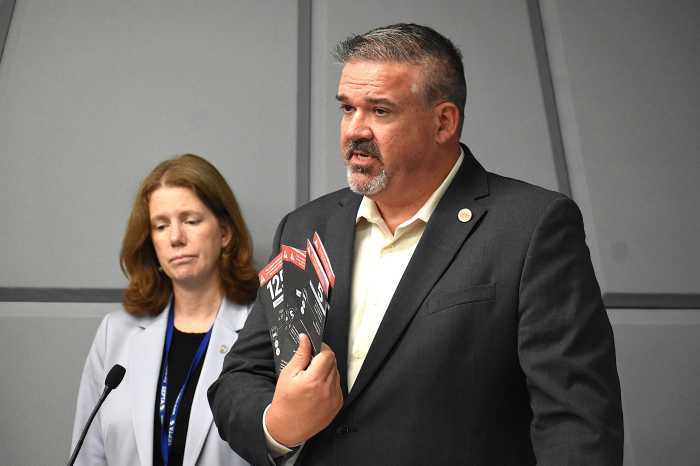
The complaint asserts that SEPTA should have turned to its service stabilization fund, which the attorneys say currently has nearly $400 million, or borrowed money before reducing service. Haver has frequently attempted to question SEPTA board members about the fund.
SEPTA officials have said the stabilization account is not a reserve fund; rather, dollars are used and deposited throughout the year to address needs.
“This fund was never intended to be used as a substitute for operating revenue,” Alex Milone, of 5th Square, said in a statement Wednesday. “Forcing SEPTA to deplete it in a misguided attempt to delay service cuts for a few weeks would only guarantee a far worse financial situation for the agency for decades to come.”
5th Square, the urbanist advocacy organization, slammed the lawsuit as a “dangerous distraction” from the Pennsylvania Senate GOP leaders they say have been holding up a funding deal.
Republican Sen. Joe Picozzi, who represents part of Northeast Philadelphia, is among those who have received the most ire from transit supporters and local Democratic elected officials.
Picozzi, in a short video uploaded to social media Wednesday afternoon, celebrated that Democratic House Majority Leader Matt Bradford indicated he would be open to using money from the state’ Public Transportation Trust Fund as part of an agreement.
“We’re moving closer and closer to a deal,” the freshman lawmaker said. “The fight continues and we’re going to get it done.”
Senate Republicans passed legislation earlier this month devoting PTTF dollars to transit agencies across Pennsylvania and road and bridge projects. Shapiro and Democrats have repeatedly proposed allocating a greater percentage of sales tax revenue to public transportation.
“I think utilizing the PTTF as part of a broader package is something that we can do, but it’s got to be part of a broader package that focuses on recurring funding over a long period of time,” Shapiro told reporters during a briefing Monday.
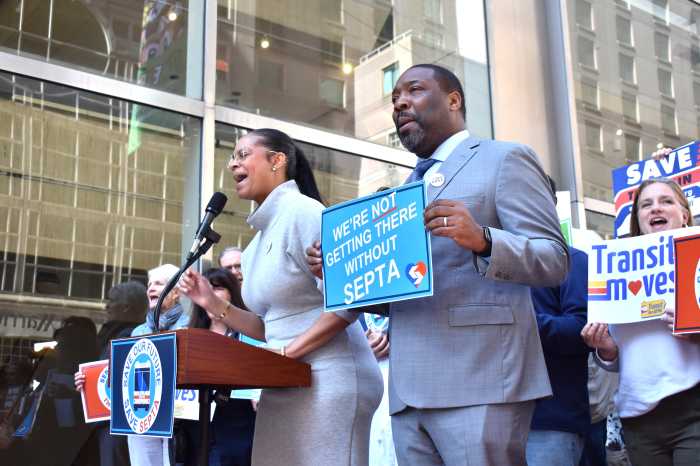
In the meantime, Uber said Wednesday that it is developing a program with two local community organizations to provide rides for seniors in West and Northwest Philadelphia impacted by the reduced transit service.
The rideshare giant credited state Rep. Morgan Cephas for facilitating a partnership with ACHIEVEability and Ogontz Avenue Revitalization Corporation.
Through the program, seniors will get promotional codes and vouchers to use with the Uber smartphone app, according to the company. For those not as comfortable with technology, ACHIEVEability and OARC staff will work with them to directly schedule rides, organizers said.
An Uber statement said the trips will be “focused on essential needs such as medical appointments, pharmacies, grocery stores and senior centers.”
“SEPTA’s service cuts have a real impact on our most vulnerable residents, and this innovative partnership is a prime example of how the private sector and community organizations can connect to fill critical gaps to support our neighbors,” Cephas said.



